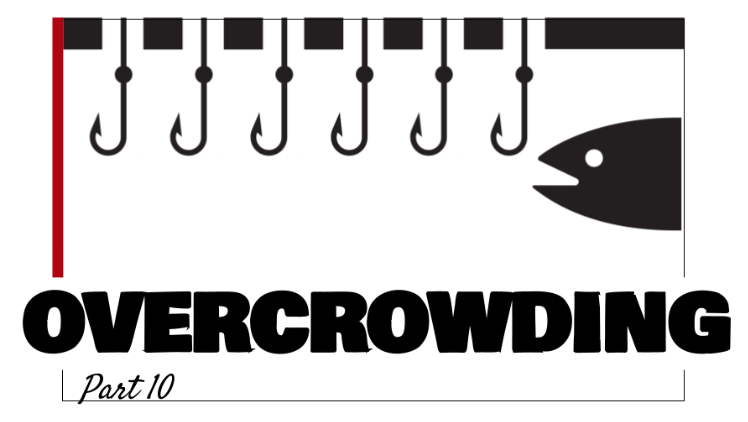Overcrowding 10) What About Private Waters?
With all the talk of finding new waters, the liminal spaces and overlooked fisheries, it begs the question; what about paying for access to private waters?

Welcome back to our series on overcrowding, examining how we got here and where we go next to find new solitude.
With all the talk of finding new waters, the liminal spaces and overlooked fisheries, it begs the question; what about paying for access to private waters?
In some respects I think every angler should try fishing private waters at some point. The comparison of fishing pressured public waters to private regulated waters is enlightening for anyone interested in fish behavior. Based on my experience in pay-to-fish waters, the lifted weight from less anglers is something everyone should get to enjoy at some point. That being said, private waters still feel like an amusement park and less realistic than what’s naturally found in wild waters, even under increased angling pressure or human disturbance.
There's a paradox with private waters. We all share the right to access our rivers and our public lands. Why should I have to pay to plant my feet on a riverbed that’s “privately owned” even if the flowing water is public. In states with restricted public access laws, this is the limiting factor. If stream access laws were ever to change, think of all the new waters that would open up for anglers, but they are still technically waters we should have access to already. Think of how this could further disperse anglers and re-equilibrate the pressure cooker of fishing public waters, or highly pressured popular fisheries.
So would we rather lock up more fisheries to help control angling pressure or open up water to improve public access in hopes of spreading people out? Both would work as partial solutions to alleviate overcrowding. As previously mentioned, some researchers who specifically investigated the behavioral effects of angling pressure on trout suggest that limiting angler presence might offer the best solution to ameliorate negative effects from anglers. The other option, however unrealistic, is to open river access for anyone. Opening up more river access simply cannot hurt the situation of overcrowded rivers. But both can’t coexist.
It’s even messy within organizations like Trout Unlimited. Often the largest donors are those most interested in maintaining private waters. So TU won’t fully go to bat for sweeping stream access reform. Even in states with more public friendly stream access rules, private land owners don’t care to follow the laws without protest. Testimonials from Montana (where access is granted to anyone below the high watermark) recount anglers getting shot at through stretches of private property, despite full legal access in the eyes of the state.
If you want to pay for your fishing you have every right, however if you think about the economics of supply and demand, it may only get more expensive over time. Supply of high value, low pressured fly fishing waters is limiting. As demand continues to increase, either from new anglers or veteran anglers looking for alternatives to highly pressured waters, without an increase in supply, prices will inevitably climb to fish private waters.
Sources:
- Peterson, C. 2020. What’s Gained and Lost by Privatizing River Access? Outdoor Life. https://www.outdoorlife.com/story/fishing/whats-gained-and-lost-by-privatizing-river-access/?amp
- Young & Hayes. 2004. Angling Pressure and Trout Catchability: Behavioral Observations of Brown Trout in Two New Zealand Backcountry Rivers. North American Journal of Fisheries Management, 24(4).


